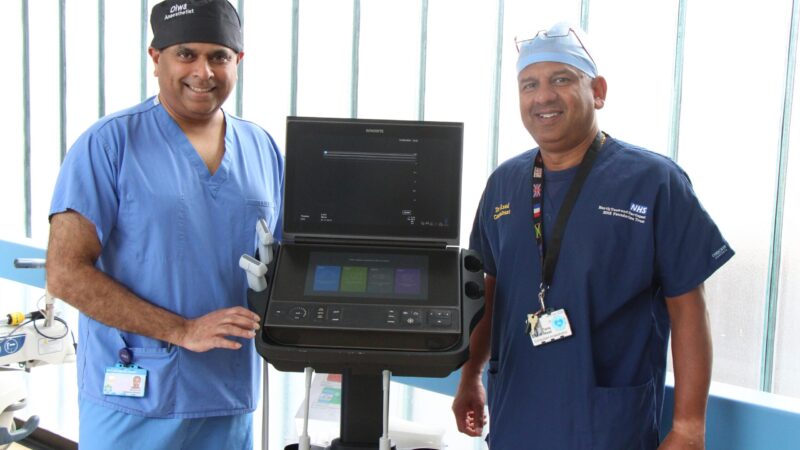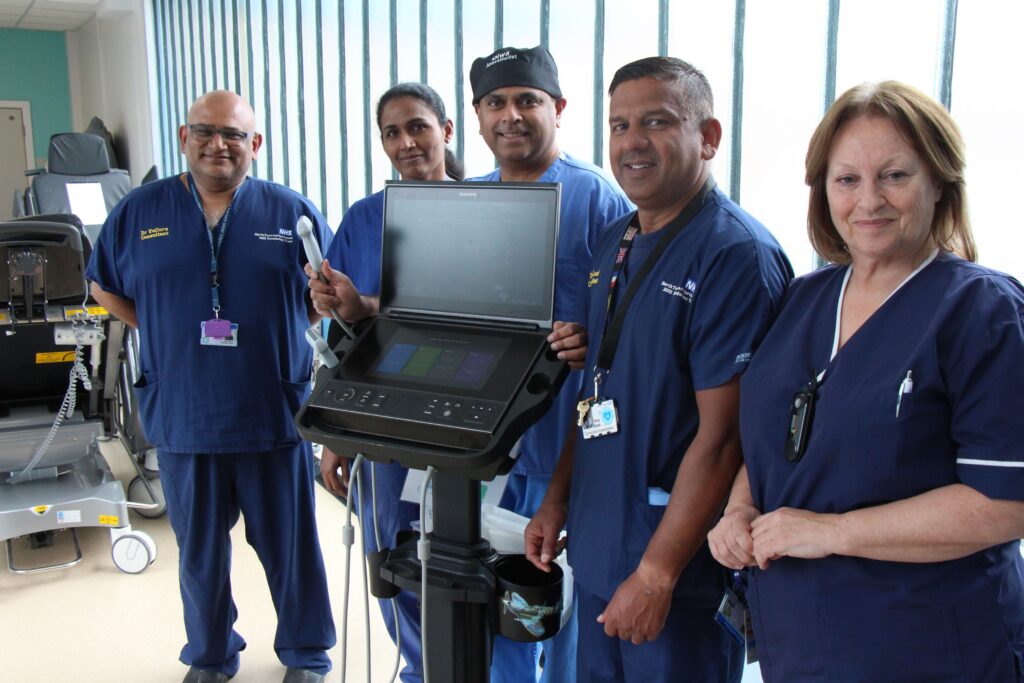
Using pain relief to prevent pneumonia may not be an obvious course of action but a team of specially trained medics at North Tees and Hartlepool NHS Foundation Trust are finding increasing success with this unusual approach.
Most people recognise that pneumonia (chest infection) presents a real risk to life. What many people don’t realise is that a broken rib can lead to pneumonia.
Coughing
The simple act of coughing helps clear the lungs and reduces the chances of pneumonia. But the pain of a broken rib can be so severe, which can lead to shallow breathing and prevent coughing. This causes lungs to collapse and pooling of secretions increasing the risk of deadly infection.
Elderly people are prone to falls and broken ribs, leaving them more at risk from life-threatening pneumonia. The pneumonia can also lead to increased risk of other complications like heart attack, pulmonary embolism (blood clot in lung) and stroke.
Reducing the chances of developing pneumonia is clearly paramount.
A specialist team of consultant anaesthetists at North Tees and Hartlepool NHS Foundation Trust is offering a service five days a week (Monday to Friday) for pain relief to patients with broken ribs.

Consultant anaesthetist Tariq Azad said: “Coughing can be very painful for someone with a broken rib and increases the risk developing pneumonia.
“We formed a small team of anaesthetists who are specialist in providing regional anaesthesia to provide pain relief to these patients thus reducing the risk of pneumonia and critical care admission.
Healing process
“We can provide pain relief in patients with broken rib by introducing a catheter in-between ribs and muscle plane and continuously administer pain relief up to a period of five days. This pain relief allows the patient to cough freely, clearing their lungs as well as deep breathing, keeping pneumonia at bay and helping in the healing process.
Fellow consultant anaesthetist Subramani Diwakar commented: “We began this process two and half years ago and so far we have been successful in treating more than 50 patients with the pain relief and reducing the risk of them developing pneumonia and respiratory failure needing ventilator support to breathe.
“We’re running this service every weekday and the acute pain team review them on ward and follow-up.
“This has been very successful and we are planning to expand this service for patients with broken hips. Studies have shown that providing adequate pain relief in this set of patients will help them to be more mobile and reduce incidents of pneumonia.
“We are really proud as a team as we volunteered and taken additional responsibilities so that our patients get the best care.”
The pain relief team also includes Dr Swadeep Vellore, Dr Chris Gibb, Dr Savin Pokhrel and Dr Kavitha Manoharan. They are continuing to train other anaesthetists and promoting the
